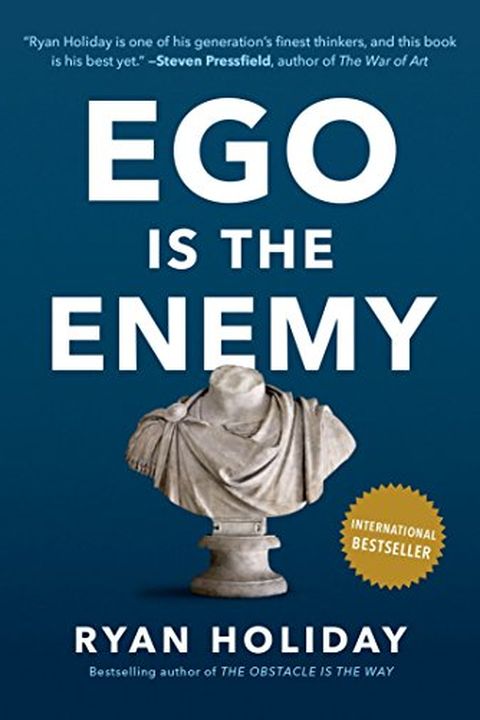Ego Is the Enemy Quotes
Your potential, the absolute best you’re capable of—that’s the metric to measure yourself against. Your standards are. Winning is not enough. People can get lucky and win. People can be assholes and win. Anyone can win. But not everyone is the best possible version of themselves.
And that’s what is so insidious about talk. Anyone can talk about himself or herself. Even a child knows how to gossip and chatter. Most people are decent at hype and sales. So what is scarce and rare? Silence. The ability to deliberately keep yourself out of the conversation and subsist without its validation. Silence is the respite of the confident and the strong.
Those who have subdued their ego understand that it doesn’t degrade you when others treat you poorly; it degrades them.
When we remove ego, we’re left with what is real. What replaces ego is humility, yes—but rock-hard humility and confidence. Whereas ego is artificial, this type of confidence can hold weight. Ego is stolen. Confidence is earned. Ego is self-anointed, its swagger is artifice. One is girding yourself, the other gaslighting. It’s the difference between potent and poisonous.
When success begins to slip from your fingers—for whatever reason—the response isn’t to grip and claw so hard that you shatter it to pieces. It’s to understand that you must work yourself back to the aspirational phase. You must get back to first principles and best practices.
The only real failure is abandoning your principles. Killing what you love because you can’t bear to part from it is selfish and stupid. If your reputation can’t absorb a few blows, it wasn’t worth anything in the first place.
The pretense of knowledge is our most dangerous vice, because it prevents us from getting any better.
Work is finding yourself alone at the track when the weather kept everyone else indoors. Work is pushing through the pain and crappy first drafts and prototypes. It is ignoring whatever plaudits others are getting, and more importantly, ignoring whatever plaudits you may be getting. Because there is work to be done. Work doesn’t want to be good. It is made so, despite the headwind.
ego is the enemy of what you want and of what you have: Of mastering a craft. Of real creative insight. Of working well with others. Of building loyalty and support. Of longevity. Of repeating and retaining your success. It repulses advantages and opportunities. It’s a magnet for enemies and errors. It is Scylla and Charybdis.
We will learn that though we think big, we must act and live small in order to accomplish what we seek. Because we will be action and education focused, and forgo validation and status, our ambition will not be grandiose but iterative—one foot in front of the other, learning and growing and putting in the time.
Silence. The ability to deliberately keep yourself out of the conversation and subsist without its validation. Silence is the respite of the confident and the strong.
There’s no one to perform for. There is just work to be done and lessons to be learned, in all that is around us.
The first principle is that you must not fool yourself—and you are the easiest person to fool. —RICHARD FEYNMAN.
What matters to an active man is to do the right thing; whether the right thing comes to pass should not bother him. —GOETHE.
You must practice seeing yourself with a little distance, cultivating the ability to get out of your own head. Detachment is a sort of natural ego antidote. It’s easy to be emotionally invested and infatuated with your own work. Any and every narcissist can do that. What is rare is not rawtalent, skill, or even confidence, but humility, diligence, and self-awareness.
Find canvases for other people to paint on. Be an anteambulo. Clear the path for the people above you and you will eventually create a path for yourself.
Attempting to destroy something out of hate or ego often ensures that it will be preserved and disseminated forever.
A person who thinks all the time has nothing to think about except thoughts, so he loses touch with reality and lives in a world of illusions.
Imagine if for every person you met, you thought of some way to help them, something you could do for them? And you looked at it in a way that entirely benefited them and not you. The cumulative effect this would have over time would be profound: You’d learn a great deal by solving diverse problems. You’d develop a reputation for being indispensable. You’d have countless new relationships. You’d have an enormous bank of favors to call upon down the road. That’s what the canvas strategy is about—helping yourself by helping others.
If the definition of insanity is trying the same thing over and over and expecting different results, then passion is a form of mental retardation- deliberately blunting our most critical cognitive functions.
